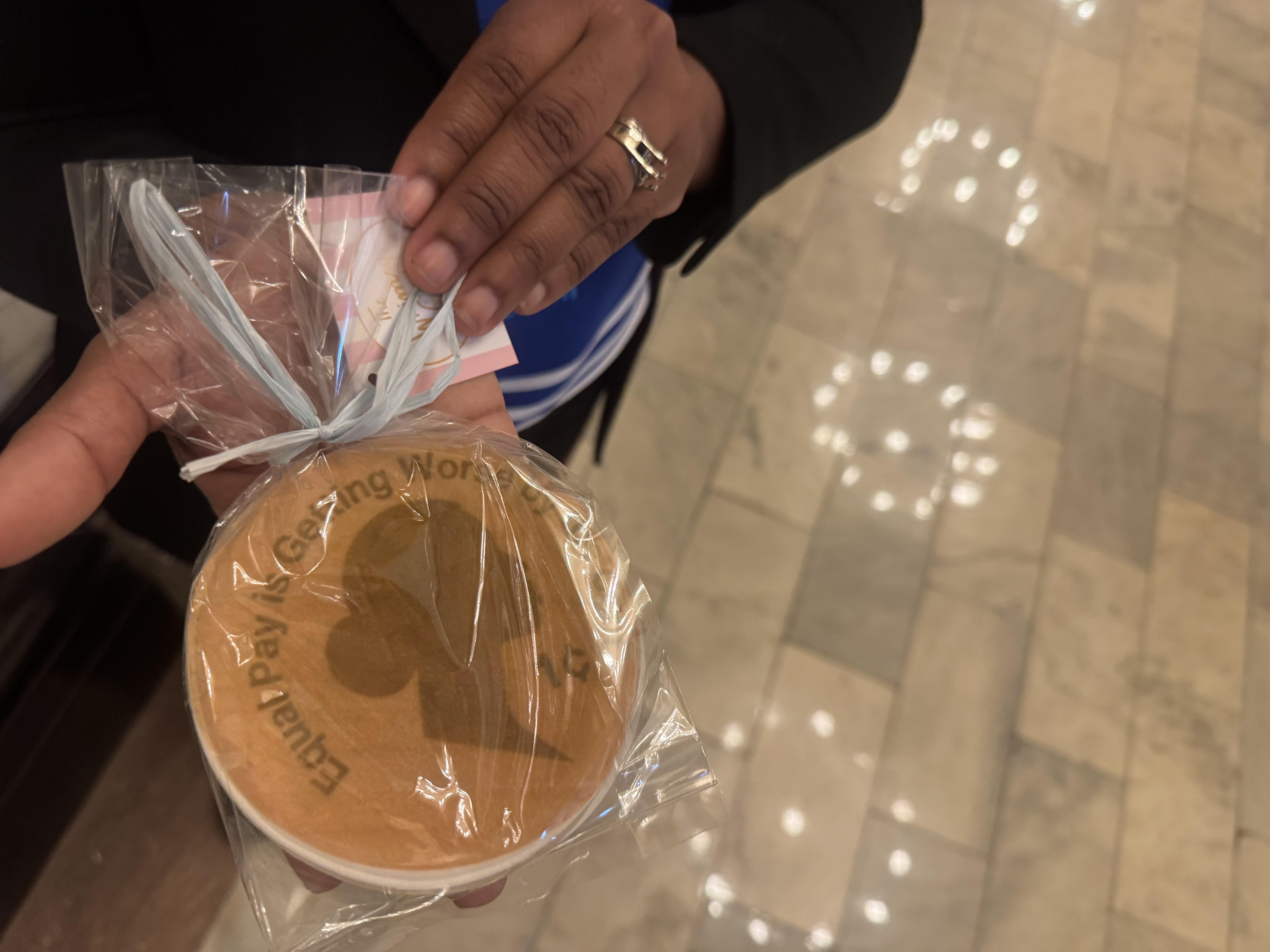Members of the Mississippi Black Women’s Roundtable gave cookies to lawmakers at the capitol Tuesday to commemorate National Equal Pay Day.
Advocates campaign to raise awareness about wage disparities faced by Black women in Mississippi


Members of the Mississippi Black Women’s Roundtable gave cookies to lawmakers at the capitol Tuesday to commemorate National Equal Pay Day.

Shamira Muhammad
Advocates campaign to raise awareness about wage disparities faced by Black women in Mississippi
Angel Tidwell is the program manager of economic security for the Mississippi Black Women’s Roundtable. She says this was a symbolic opportunity to bring attention to the wage gap faced by many female workers, especially those of color.
“The cookies are in the shape of a coin,” she said. “Our theme is equal pay is getting worse by the cent.”
According to a press release published in 2024, the U.S. Department of Labor found that Black women lost $42.7 billion in wages compared to White men in 2023. The research found that much of this disparity was due to women of color being concentrated in fields that paid significantly lower than jobs that are held by White men.
“We often see this oftentimes in workforces such as the food industry or the retail industry,” Tidwell said. “But also, you will see women who have the same educational background as their male counterparts, the same certifications, the same skills and job experience as their male counterparts were still making much less than their male counterparts.”
The full study is no longer available on the Department of Labor’s website and a banner above the press release warns that the information presented may be out of date or does not reflect current policies.
Yet, according to the Institute for Women’s Policy Research, Black women still only make 66 cents for every dollar made by White men.
State legislator Zakiya Summers, who represents parts of Hinds and Rankin counties, says she's concerned by this disparity.
“What we want to do is raise awareness around the fact that we still have wage discrimination and wage disparities between genders,” she said. “At the very top of the totem pole, of course, is White men and at the very bottom of the totem pole is Black women.”
Summers says the wage gap does not strictly apply to women of color.
“Women on average are making 76 on the dollar compared to White men,” she said. “For women of color, it's lower than that. So we want to continue to raise awareness because we want to bring attention to this issue to ensure that women are getting their fair share.”
In 2022, Mississippi enacted the state’s Equal Pay Act. This prohibits employers from paying an employee less than a person of the opposite sex for equal work under similar conditions.
“It was something that the Mississippi Black Women's Roundtable had been advocating for, for years,” Summers said. “So we finally got it across the finish line, but what we found out was that there was still some language in that bill that needed to be tweaked around.”
Currently, the law allows employers to use a job applicant’s wage history to formulate their salary, a practice that Summers believes has a disproportionately negative impact on Black female workers.
“We don't want potential or new employers to use wage history as a barrier for making sure that women get the salary that they deserve commensurate to their experience in the job that they're applying for,” she said.
Tidwell, who’s with the Mississippi Black Women’s Roundtable, says wage history does not always reflect a job applicant’s qualifications.
“When you have an individual, who's going back to school to obtain an additional degree, additional education, additional certifications in order to improve their financial stability,” she said. “We're still using pay history to offer people salaries, and it's just not what we should be doing, and it's not what we should be accepting in 2025.”
Earlier this session, Summers introduced House Bill 716 that would have restricted the use of wage history on job applications, but the bill died in committee. She plans to author a similar bill next year.
The Institute for Women’s Policy Research predicts that Black women will not reach pay equity until 2227.